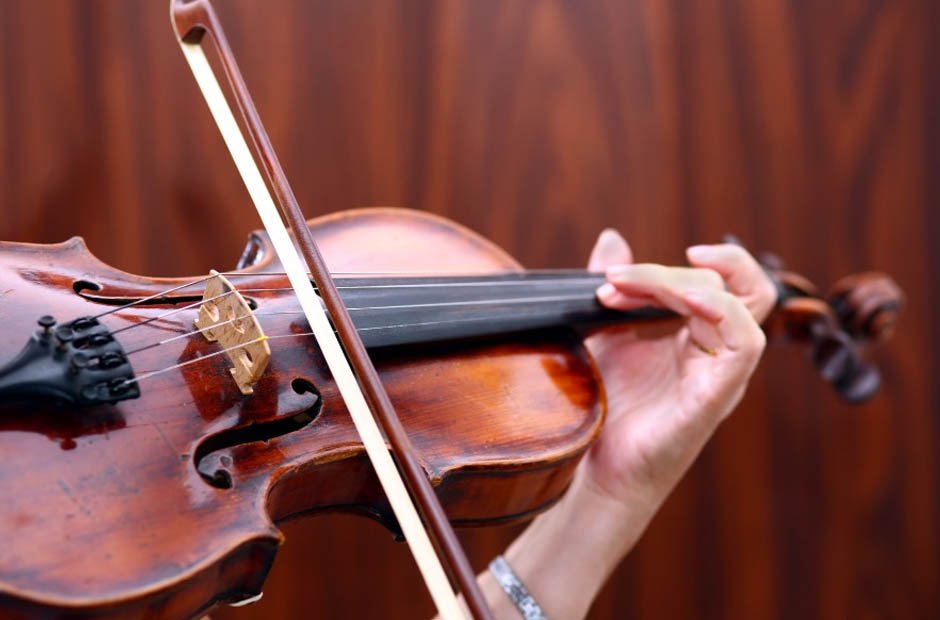According to research, learning to play a musical instrument at a young age can provide a child with mental health benefits while improving their physical and cognitive abilities. Learning a new instrument is also a rewarding way to develop creativity and discipline. With its rich history, the violin is highly versatile and the ideal instrument for exploring a wide range of sounds and music genres, including classical, rock, and country music.
If you want your child to learn the violin, the first question is whether your child is at the appropriate age. At Music Academy of Texas, we offer violin lessons Katy and understand the challenges young children face when learning this instrument. This article discusses the factors you should consider to find the right time for your child to start their violin journey.
Motor Development
Physical, motor, and coordination development are integral to a child’s ability to learn the violin. Before a child can learn the violin, they must have developed specific fine motor skills, which involve small, controlled movements in the wrists, hands, and fingers. At the age of six, most children have reached the developmental stage where they can learn basic violin techniques without adopting bad habits that will slow down their progress.
However, learning the violin also promotes the further development of fine motor skills. A six-year-old yet to achieve age-appropriate motor skills will benefit from violin lessons, making this the ideal starting age.
Cognitive and Emotional Readiness
Generally speaking, children between the ages of five and seven develop the ability to follow instructions and concentrate on a specific task. Children in this age bracket are nearing the “concrete operational stage” of their emotional development, which involves concrete and logical thinking.
During this stage, children can also concentrate on multiple aspects simultaneously. For example, a child can focus on maintaining the correct violin posture and holding the bow correctly without feeling overwhelmed.
Children’s attention spans start improving from the age of six, and they generally have no difficulty learning basic violin techniques.
Musical Foundation
Prior exposure to music education can be highly valuable to young children starting violin lessons. Even basic music programs involving dancing, singing, or playing a simple rhythm instrument can give your child the foundation they need to learn violin basics. Early musical education for toddlers and pre-schoolers gives children an appreciation for music, making violin lessons more enjoyable and effective.
If your child has no early musical education, don’t fret. Prior exposure to music education is not a requirement for violin lessons, and you can introduce your child to this instrument from the age of six or seven.
Interest and Motivation
Children who are inherently motivated to learn the violin are likelier to work harder and overcome developmental shortcomings. If your child regularly listens to violin music, watches online violin lessons, or asks you to take out your violin so they can play with it, lessons from the early age of six will likely be of lifelong value to them.
On the other hand, if your child shows no interest in violin, it may be a good idea to wait until they are a little older. You don’t want to force an unwilling child to take violin lessons as they may develop a resentment towards the instrument or music lessons in general.
Parental Commitment
When young children receive support from their parents, they are more likely to practice and master the instrument. Listening to a scale practice session can be mundane, but it will be valuable to your young child, who may still lack the discipline and concentration to do the work on their own. If you are prepared to become personally involved in your child’s musical education, you can sign them up for lessons from the earliest age.
However, if you have a grueling work schedule, your child may understandably need to learn the violin on their own while you provide encouragement. Does your young child have the self-discipline to practice independently every day? If not, wait a year or two before enrolling them for lessons.
Most children have the motor skills, concentration, and cognitive abilities to start learning the violin from age six. However, each child’s situation and personality are unique, and you need to rely on your insight as a parent to find the right time for them to start. That said, there are no real drawbacks to enrolling a motivated child for violin lessons at the earliest age, and taking this step can only improve their life.
















